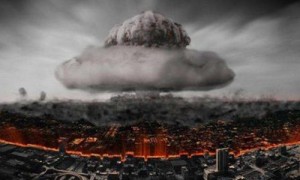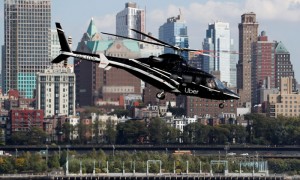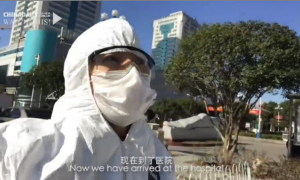Thailand’s government has declared a state of emergency giving security forces broad powers to crack down on protesters in Bangkok.
The move suggests the government of Prime Minister Yingluck Shinawatra may start taking a tougher stand against protesters who continue to block access to key ministries and have shut down parts of Bangkok. But will the new measures dampen the demonstration or cause tensions to rise?
The political wheels are spinning as Thailand’s crisis drags on. In a bid to cling to power, Thailand’s government declares a state of Emergency in Bangkok- An aggressive posture toward protesters who have occupied parts of the city for more than two months and are seeking to overthrow the government.
“This is may be more or less a pre-emptive measures so that the police can be in a better position to deal with situations that we might be confronted with in the future,” said Sihasak Puangkaedkaew, Thailand Ministry of Foreign Affairs.
Aimed at preventing an escalation of the protests, the 60-day emergency decree gives security agencies wide powers to detain suspects, impose a curfew and limit gatherings in and around Bangkok.
It is a familiar story. Back in 2010, it was then Deputy Prime Minister, Suthep Thaugsuban, now protest leader, who issued a State of Emergency. The military step in, more than 90 people died.
This time, Suthep and his supporters are defiant.
"We will stop at nothing….They are trying to resort to the use of force because they can, they basically, they’re very desperate at the moment. There is nothing else that they can do because the movement is growing in support and so this is like they’re last solution," said Akanut Prompan, protest spokesman.
For now, the Army remains in their barracks. But escalating violence could force them out to restore order.
The State of Emergency follows increasing attacks for which the government and protesters blame each other. But questions remain whether imposing this decree will quell the political crisis or whether it could raise tensions and make an already bad situation worse.
"The demonstrators seem to be determined to do more. It seems like the announcement and the use of the emergency decree at this stage is not effective. But of course we have look more into the next few days, if the operation will be coming out," said Panitan Wattanayagorn, Chulalongkorn University.
There is no sign of the protesters leaving - a reflection of their boldness amid the government’s unwillingness to use force for fear of causing bloodshed.
And so begins the new phase of Thailand’s prolonged political crisis. But it’s a crisis that is in danger of spinning out of control.







